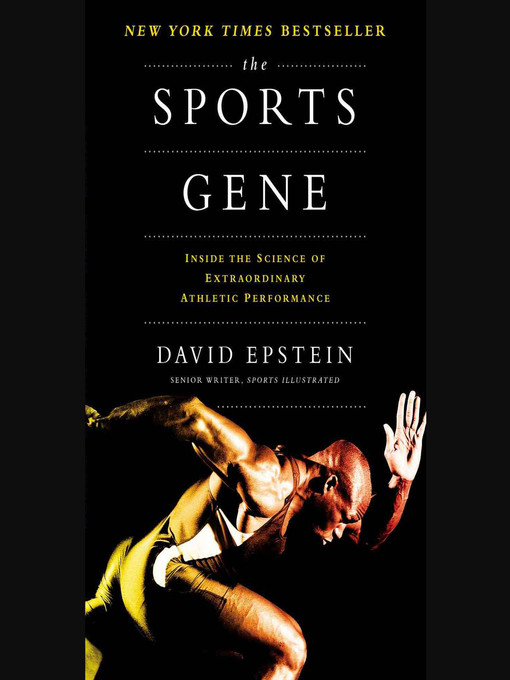"In high school, I wondered whether the Jamaican Americans who made our track team so successful might carry some special speed gene from their tiny island. In college, I ran against Kenyans, and wondered whether endurance genes might have traveled with them from East Africa. At the same time, I began to notice that a training group on my team could consist of five men who run next to one another, stride for stride, day after day, and nonetheless turn out five entirely different runners. How could this be?"
We all knew a star athlete in high school. The one who made it look so easy. He was the starting quarterback and shortstop; she was the all-state point guard and high-jumper. They were naturals—or were they?
The debate is as old as physical competition. Are stars like Usain Bolt, Michael Phelps, and Serena Williams genetic freaks put on Earth to dominate their respective sports, or are they simply normal people who overcame their biological limits through sheer force of will and obsessive training?
The truth is far messier than a simple dichotomy between nature and nurture. In the decade since the sequencing of the human genome, researchers have slowly begun to uncover how the relationship between biological endowments and a competitor's training environment affects athleticism. Sports scientists have gradually entered the era of modern genetic research.
In this controversial and engaging exploration of athletic success, Sports Illustrated senior writer David Epstein tackles the great nature versus nurture debate and traces how far science has come in solving this great riddle. He investigates the so-called ten-thousand-hour rule to uncover whether rigorous and consistent practice from a young age is the only route to athletic excellence.
Along the way Epstein dispels many of our perceptions about why top athletes excel. He shows why some skills that we assume are innate, like the bullet-fast reactions of a baseball or cricket batter, are not and why other characteristics that we assume are entirely voluntary, like an athlete's will to train, might in fact have important genetic components.
This subject necessarily involves digging deep into sensitive topics like race and gender. Epstein explores controversial questions such as:
Through on-the-ground reporting from below the equator and above the Arctic Circle, revealing conversations with leading scientists and Olympic champions, and interviews with athletes who have rare genetic mutations or physical traits, Epstein forces us to rethink the very nature of athleticism.


